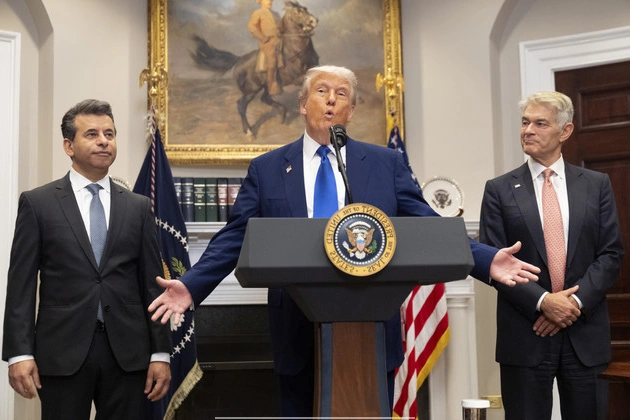
The politics of Medicaid have undergone a significant transformation under the Trump administration, with profound implications for both parties. Republicans, who once favored Medicaid cuts, are now championing a bill to strengthen the program, rebranding it as a move to enhance its efficacy.
Changing Political Dynamics
This shift reflects the evolving landscape of Medicaid politics and the changing demographics of the GOP coalition. Democrats see an opportunity to leverage Medicaid as a focal point that could expose vulnerabilities within the Trump coalition.
Key to this narrative is a Congressional Budget Office projection that the proposed bill could result in 7.8 million individuals losing access to Medicaid, sparking concerns about the impact on low-income families. This statistic has prompted Democrats to target working-class voters who have increasingly aligned with the GOP in recent years.
Medicaid’s Political Relevance
Medicaid, which provides health coverage to nearly 80 million Americans, has historically been overshadowed by programs like Social Security and Medicare in electoral discussions. However, recent shifts indicate a growing recognition of its significance.
Political advertising data reveals a notable uptick in Medicaid mentions in campaign ads, signaling a newfound emphasis on the program’s importance. Democratic leaders like Kentucky Governor Andy Beshear are advocating for a stronger focus on Medicaid’s impact on communities, urging a more nuanced discussion on its benefits.
Partisan Responses and Debates
Congressional Democrats have rallied in defense of Medicaid, highlighting its vital role in providing healthcare access to vulnerable populations. The party’s campaign strategies now prioritize Medicaid messaging in swing districts, underscoring its political salience.
Within the GOP, divergent views on Medicaid provisions have emerged, with senators like Josh Hawley expressing reservations about potential cuts. The party’s narrative emphasizes the bill’s intent to safeguard Medicaid by targeting those deemed ineligible, a departure from previous stances advocating for significant reductions.
Impact on Voter Sentiment
The expansion of Medicaid in red states and the program’s growing enrollment have reshaped its political landscape. Republican voters, particularly in counties with high Medicaid participation, have shown increased support for Medicaid, aligning with Trump’s messaging.
Public opinion polls suggest that Medicaid policies could influence voter decisions, especially in swing states like Pennsylvania. Work requirements and eligibility criteria are contentious issues that may sway voter perceptions, underscoring the strategic importance of effective policy communication.
Future Political Strategies
As debates over Medicaid intensify, both parties are refining their messaging to resonate with voters. The GOP’s defense of the bill as a means to safeguard Medicaid without imposing cuts reflects a nuanced approach aimed at allaying concerns among diverse voter segments.
Democrats, on the other hand, are leveraging Medicaid as a cornerstone of their healthcare platform, targeting swing-district Republicans with ads that highlight potential consequences of Medicaid reductions. The looming midterm elections will likely see heightened discourse on Medicaid’s future trajectory and its implications for voter trust.











